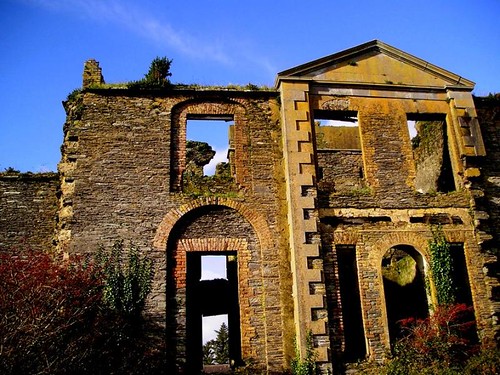 |
| Ruin of a workhouse in County Kerry, photo by terryballard |
2. The system was set up to be miserable, so as not to encourage people to give up work to come there. The idea was that the life of the poorhouse tenant should be at a lower level than the lowest of able bodied workers outside the poorhouse. The only problem was that was pretty low. For instance, establishing a diet that was less tolerable than what the folks on the outside ate was difficult to imagine. So no one wanted it but when the Potato Famine hit in 1846, the poorhouse became the fate of many. Even so, the Irish clung to their land and during the height of the famine, the poorhouses were only half full.
3. The workhouses (or poorhouses) were opened in the eighteenth century and did not close until Irish Independence in 1919 when an order came to abolish the "odious, degrading and foreign workhouse system of poor relief." (The Workhouses of Ireland, The Fate of Ireland's Poor by John O'Connor)
4. There were no toilets, no running water, little ventilation. Some were overcrowded and sometimes the dead were found among the living. Watery Indian meal was cooked in a cauldron, the butter was rancid and the bread stale. The workhouse master enforced a strict law that included long periods of silence, that is, if he was successful in controlling the crowd at all.
 |
| Family being evicted in 1879. Wikipedia photo. |
I was inspired by this episode of Who Do You Think You Are when I wrote about Grace McCaffery leaving a poorhouse in Ireland to come to America.

Interesting post, Cindy. Thank you. It makes me thinks about how hard it was for my ancestors to live.
ReplyDeleteDid you know Who Do You Think You Are is coming back on the TLC channel in July? I love that show and happy it is coming back
Yes, I'm excited about that too. And PBS is doing Genealogy Roadshow, which comes from the show they've been doing in Ireland. I'll be doing a magazine article on that.
Delete